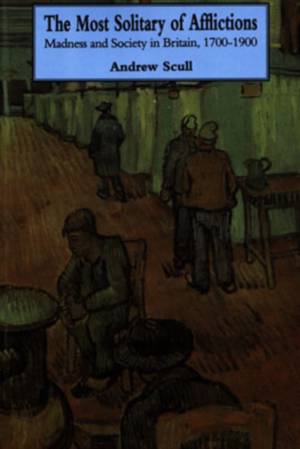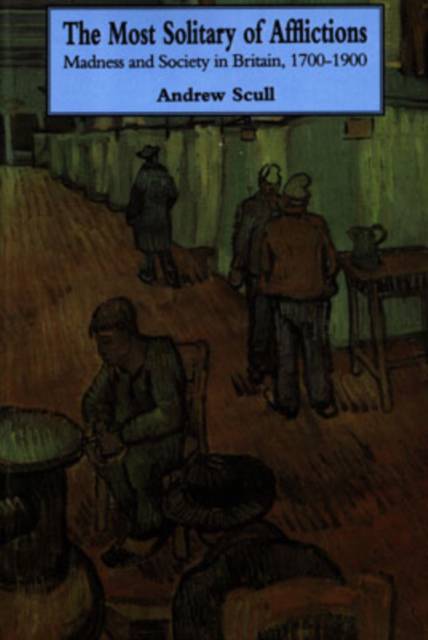
- Retrait gratuit dans votre magasin Club
- 7.000.000 titres dans notre catalogue
- Payer en toute sécurité
- Toujours un magasin près de chez vous
- Retrait gratuit dans votre magasin Club
- 7.000.0000 titres dans notre catalogue
- Payer en toute sécurité
- Toujours un magasin près de chez vous
Most Solitary of Afflictions
Madness and Society in Britain, 1700-1900
Andrew Scull
Livre broché | Anglais
76,45 €
+ 152 points
Description
The routine confinement of the deranged in a network of specialized and purposely built asylums is essentially a 19th-century phenomenon. Likewise, it is only from the Victorian era that a newly self-conscious and organized profession of psychiatry emerged and sought to shut the mad away in "therapeutic isolation". In this book, Andrew Scull studies the evolution of the treatment of lunacy in England and Wales, tracing what lies behind the transformations in social practices and beliefs, examining how institutional management of the mad came to replace traditional systems of family and local care, and exploring the striking contrast between the utopian expectations of the asylum's founders and the harsh realities of life in these asylums. Scull locates the roots of the new ideas about lunacy and its treatment in pervasive changes in the political, economic and social structure of British society, and in the associated shifts in the intellectual and cultural horizons of its governing classes. He explains that a widening range of eccentric behaviour was accommodated under the label of madness so that asylums became a repository for the troublesome, senile and decrepit; the resulting overcrowding of asylums, says Scull, made the original goals of treatment and cure impossible to achieve. Scull's provocative account shows that the history of our responses to madness, while far from being an unrelieved parade of horrors and ever-increasing repression, is equally far from being a stirring tale of the progress of humanity and science. This book, based on Scull's study "Museums of Madness" is an extensive reworking and enlargement of that earlier text. Drawing on his own research and that of others over the last 15 years, Scull now adds new dimensions to this work in the history of psychiatry and 19th-century British society.
Spécifications
Parties prenantes
- Auteur(s) :
- Editeur:
Contenu
- Nombre de pages :
- 448
- Langue:
- Anglais
Caractéristiques
- EAN:
- 9780300107548
- Date de parution :
- 01-05-05
- Format:
- Livre broché
- Format numérique:
- Trade paperback (VS)
- Dimensions :
- 152 mm x 229 mm
- Poids :
- 612 g

Les avis
Nous publions uniquement les avis qui respectent les conditions requises. Consultez nos conditions pour les avis.






